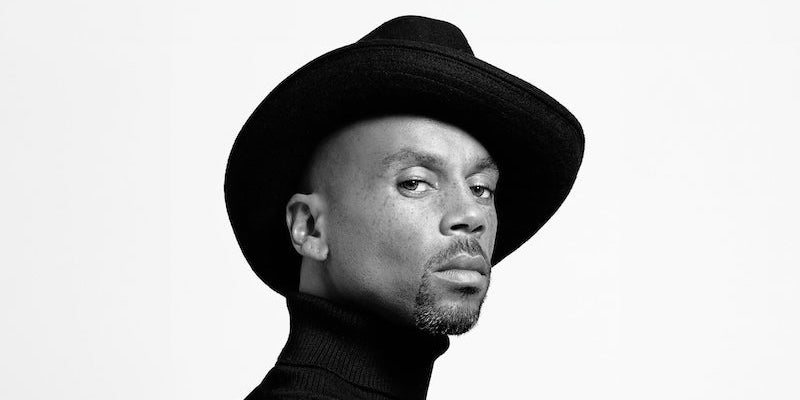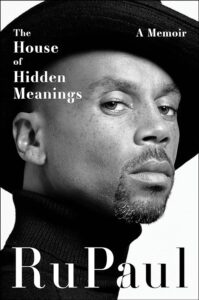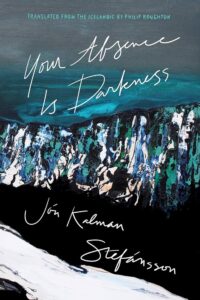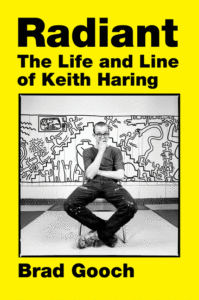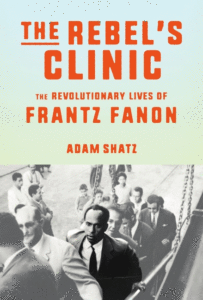5 Book Reviews You Need to Read This Week
“A striver high on his own supply who tries to spin his story as empathetic wisdom draped in Instagram-ready captions.”
Our fistful of fabulous reviews this week includes Saeed Jones on RuPaul’s The House of Hidden Meanings, Daniel Mason on Jón Kalman Stefánsson’s Your Absence is Darkness, Jordan Kisner on Adelle Waldman’s Help Wanted, Jackson Arn on Brad Gooch’s Radiant, and Erik Linstrum on Adam Shatz’s The Rebel’s Clinic.
Brought to you by Book Marks, Lit Hub’s home for book reviews.
*
“What’s revealed is a striver high on his own supply who tries to spin his story as empathetic wisdom draped in Instagram-ready captions … RuPaul summarizes the Great Migration in a paragraph that would be considered too concise even for a Wikipedia entry, then declares, ‘All the Black people in our neighborhood were transplants from the South, and so they had inherited a kind of slave mentality, which was based on fear.’ Aside from breathtaking dismissiveness of the decades of racial violence that made the migration necessary, it’s chilling to see a public figure known as a champion of the marginalized so easily dismiss survivors of Jim Crow-era terror as people who ‘hold onto their victim mentality so fiercely; it becomes a defining feature of their identity.’
The way we tell our stories has a way of telling on us. The memoir reveals an author who thinks he understands outsiders when, really, all he understands is that he wanted to become famous and eventually became famous. And given RuPaul Charles’s truly extraordinary talent, that would be fine if the book (and his brand) weren’t so invested in trying to convince the rest of us that he has unique insight into the joke called life … RuPaul has lived a life, honey. Without question. But living a life and coherently expressing a life story on the page are two very different arts.”
–Saeed Jones on RuPaul’s The House of Hidden Meanings (The New York Times Book Review)
“Jon Kalman Stefansson’s 2007 novel Heaven and Hell, the first of an extraordinary trilogy, begins with a sea voyage worthy of Melville. A crew of cod fishermen is caught in a storm off a remote coast of Iceland. The land vanishes, snow swirls over the water. As the waves bear down on the soaked rowers, they must stop continually to punch off the ice that forms on their clothes. It’s a fitting image of both the sea’s terrifying indifference and a desperate, seemingly futile violence from within. Elemental nature and human tragedy are equally present in Stefansson’s latest book to be translated into English, Your Absence Is Darkness. Set across farms and villages on the wind- and sea-swept Snaefellsnes peninsula in western Iceland, the novel presents communities similarly shaped by their harsh and beautiful landscape, and by the rich history of their forebears …
Each story could stand on its own; one of the pleasures of the novel is the slow revelation of their connections. This is a tale of heritage, a topic hardly unique to Iceland, and yet it was impossible not to feel that it shares many of the same preoccupations—genealogical and topographical—with classic 13th- and 14th-century Icelandic family sagas … The structure of Your Absence Is Darkness is best described as a series of recursions: The stories build and break apart, yield to other stories, emerge again later, sometimes at length, sometimes in fragments, flashbacks, single words. The effect is kaleidoscopic; as the narrative turns, pieces shift, stories merge, themes dilate and contract. I fantasized about an edition printed in color, each narrative strand a hue of its own, the shuttling, shuffling syntax fractal in its effect …
In linking remembering to re-creation, he uses amnesia to bring author and reader together as common travelers into the unknown. For what are we upon opening a new book if not amnesiac? We must have our new lives created for us. Either it must be explicitly explained, or we must piece together clues, must eavesdrop. We too appear in the churchyard without memory, and meet the world anew.”
–Daniel Mason on Jón Kalman Stefánsson’s Your Absence is Darkness (The New York Times Book Review)
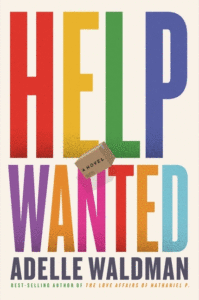
“It’s surprising, really, that such stores, emblematic of American capitalism as they are, don’t feature prominently in more novels. Waldman’s Town Square seems almost too obviously allegorical … Like many novels of manners, Nathaniel P. seems at first blush to be a niche book about small things—its world is as narrow as a railroad apartment—but the fine-tuned way that Waldman captures the breathtaking sexism and intellectual hypocrisy of the New York literary world of that era pushes the book toward something more muscular and political. Nate’s world is as far as can be from the warehouse workers’ grinding precarity in Help Wanted, but Waldman’s approach to both is driven by a common set of questions: What lies do people tell themselves to justify their own quest for power, security, and affirmation? Whose needs—or material realities—do they have to see as less than real? And where do they grasp or stumble into moments of connection?
Waldman’s strength is dramatic irony, and she is attracted to characters whose flaws are fluorescently obvious to the reader (and, often enough, the character’s friends and family) but remain invisible to the characters themselves … Agility with characters’ psychology is key to the polyvocal Help Wanted … A plot that turns on a dozen people dreaming, scheming, and competing for a single shot at the basic dignity of earning a decent living is depressing.
Waldman is faithful to reality: The relentless grind in which these characters find themselves won’t change. There’s little opportunity for any real transformation, hope, or happy ending. And yet this is the plot that guides the lives of millions of Americans. Whereas Waldman went narrow in the cultural purview of her first book, she has gone wide now.”
–Jordan Kisner on Adelle Waldman’s Help Wanted (The Atlantic)
“Nabokov has a short, vivid scene about a bouquet of flowers. The bouquet sits in a shop that makes copies of old curios. A boy strolls in and touches the petals, expecting them to be lifeless, only to find that they’re the real deal, camouflaged by a roomful of fakery. Brad Gooch’s new biography, Radiant: The Life and Line of Keith Haring, often gives you the sense that Haring was, in essence, that bouquet: an utterly genuine person in a profession full of artifice … Gooch, a seventies downtowner himself and the author of a sensitive biography of Frank O’Hara, is superb on the textures of these New York years, when a young artist seemingly couldn’t cross the street without getting ideas …
By the middle of the decade, the rockets remained unlaunched, but the aidsepidemic had killed thousands of Americans, many of them gay New Yorkers. Reagan didn’t make a major speech on the subject until 1987, six years after the earliest reported cases and several after Haring began showing symptoms. Radiant never outright claims that he cranked out art in part because he suspected that he was going to die soon, but it doesn’t have to. Everybody he knew half suspected that they were going to die soon … The most frustrating thing about Haring, and maybe the most intriguing, is that he was a seventies, performance-type artist who fell into an eighties, gallery-type career; decided that he was a regular painter after all; and then expected everyone to find profundity in his bright, melty stick men, just as he had once found profundity in the Monkees. It is true, though trivially, that he made it big because he got lucky: lucky with his location, luckier with his timing, and luckiest with his skin color …
It is hard to name another famous artist in whom the lovable was joined by so much that still grates. A performer of undeniable charm; a gentle fellow, good with kids and loyal to friends; a martyr who bravely spoke out about his disease. On the other hand: a dilettante of immense self-esteem who rode the train, saw the tags of Black and Latino teen-agers, appears to have thought, Yeah, I could do that, was promptly and richly rewarded, and still felt that his reward wasn’t big enough. ”
–Jackson Arn on Brad Gooch’s Radiant: The Life and Line of Keith Haring (The New Yorker)
“While some of his contemporaries made similar arguments about the lived experience of oppression and the warping effects of colonialism, Fanon did so from the perspective of a practicing psychiatrist. In treating patients who were often severely disturbed, he was able to see abstractions about the harm inflicted by racism and empire as flesh-and-blood realities. It was the imperative to heal that infused his politics with such urgency. We still read Fanon because he diagnosed the disease and worked for a cure … One of the more provocative elements of Shatz’s account is the suggestion that a residue of republican universalism, overlaid with existential and Marxist universalisms, left Fanon with a lasting ‘defiance of identity’s claims.’ Fanon was, of course, well aware of the hypocrisies lurking within high-flown rhetoric of equality, and disdainful of naïvely color-blind ideologies that ignored the necessity of racial struggle…But Fanon also insisted on defining race as a product of material inequality rather than as an innate condition …
Shatz is perhaps a bit too eager to cast Fanon as a forerunner of anti-psychiatry, the later movement that saw madness as a form of tragic knowledge and aimed at emptying out the asylums. He was, after all, an enthusiastic practitioner of electroshock therapy (a grim irony in light of the French army’s use of torture by electrocution on Algerian prisoners). More persuasive is the suggestion that shock therapy came to function as a political metaphor for Fanon, an extension of his faith in self-making through physical action … Whatever a Fanonian future might look like, it has not arrived yet.”
–Erik Linstrum on Adam Shatz’s The Rebel’s Clinic: The Revolutionary Lives of Frantz Fanon (The New Republic)

